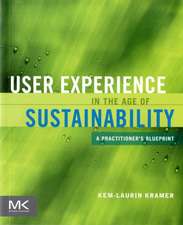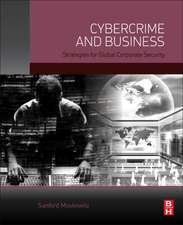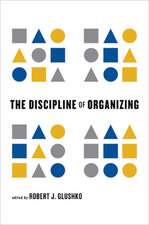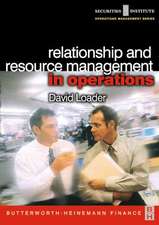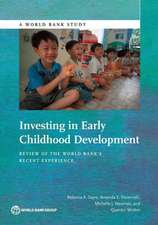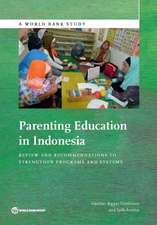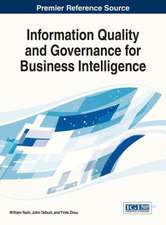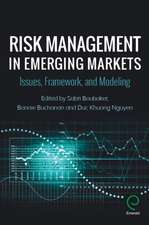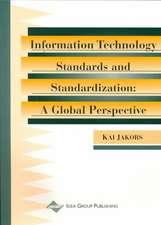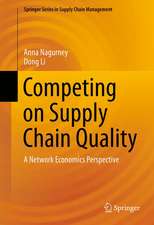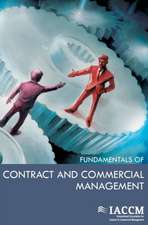Rethinking Food and Agriculture: New Ways Forward
Editat de Amir Kassam, Laila Kassamen Limba Engleză Paperback – 22 oct 2020
Rethinking Food and Agriculture explores and uncovers some of the key historical, ethical, economic, social, cultural, political, and structural drivers and root causes of unsustainability, degradation of the agricultural environment, destruction of nature, short-comings in science and knowledge systems, inequality, hunger and food insecurity, and disharmony. It reviews efforts towards ‘sustainable development’, and reassesses whether these efforts have been implemented with adequate responsibility, acceptable societal and environmental costs and optimal engagement to secure sustainability, equity and justice. The book highlights the many ways that farmers and their communities, civil society groups, social movements, development experts, scientists and others have been raising awareness of these issues, implementing solutions and forging ‘new ways forward’, for example towards paradigms of agriculture, natural resource management and human nutrition which are more sustainable and just.
Rethinking Food and Agriculture proposes ways to move beyond the current limited view of agro-ecological sustainability towards overall sustainability of the food and agriculture system based on the principle of ‘inclusive responsibility’. Inclusive responsibility encourages ecosystem sustainability based on agro-ecological and planetary limits to sustainable resource use for production and livelihoods. Inclusive responsibility also places importance on quality of life, pluralism, equity and justice for all and emphasises the health, well-being, sovereignty, dignity and rights of producers, consumers and other stakeholders, as well as of nonhuman animals and the natural world.
- Explores some of the key drivers and root causes of unsustainability , degradation of the agricultural environment and destruction of nature
- Highlights the many ways that different stakeholders have been forging 'new ways forward' towards alternative paradigms of agriculture, human nutrition and political economy, which are more sustainable and just
- Proposes ways to move beyong the current unsustainable exploitation of natural resources towards agroecological sustainability and overall sustainability of the food and agriculture system based on 'inclusive responsibility'
Preț: 976.04 lei
Preț vechi: 1256.40 lei
-22% Nou
Puncte Express: 1464
Preț estimativ în valută:
186.82€ • 203.00$ • 157.03£
186.82€ • 203.00$ • 157.03£
Carte tipărită la comandă
Livrare economică 14-28 aprilie
Preluare comenzi: 021 569.72.76
Specificații
ISBN-13: 9780128164105
ISBN-10: 0128164107
Pagini: 476
Dimensiuni: 152 x 229 x 36 mm
Greutate: 0.64 kg
Editura: ELSEVIER SCIENCE
ISBN-10: 0128164107
Pagini: 476
Dimensiuni: 152 x 229 x 36 mm
Greutate: 0.64 kg
Editura: ELSEVIER SCIENCE
Public țintă
students, academics, professionals, researchers, educationalists, activists, service providers and decision-makers in the public, private and civil sectors, extension staff of development agencies, staff of international and national development and technical assistance agenciesCuprins
1. Setting innovation free in agriculture
2. Agriculture planted the seeds of alienation from nature
3. Political-economy of the global food and agriculture system
4. Neo-colonialism and the New Alliance for Food Security and Nutrition: A gendered analysis of the development consequences for Africa
5. The myth of a food crisis
6. Animal Ethics as Critique of Animal Agriculture, Environmentalism, Foodieism, Locavorism, and Clean Meat
7. A food system fit for the future
8. Why change the way we grow, process and consume our food?
9. Two paradigms of science - and two models of science-based agriculture
10. Paradigms of Agriculture
11. Soil health and the revolutionary potential of Conservation Agriculture
12. Climate change adaptability and mitigation in Conservation Agriculture
13. Will gene-edited and other GM crops fail sustainable food systems?
14. Sustaining agricultural biodiversity and heterogeneous seeds
15. Healthy diets as a guide to responsible food systems
16. Knowledge systems for inclusively responsible food and agriculture
17. Social movements in the transformation of food and agriculture systems
18. Alternatives to the global food regime: Steps towards system transformation
19. Co-creating responsible food and agriculture systems
20. Towards inclusive responsibility
2. Agriculture planted the seeds of alienation from nature
3. Political-economy of the global food and agriculture system
4. Neo-colonialism and the New Alliance for Food Security and Nutrition: A gendered analysis of the development consequences for Africa
5. The myth of a food crisis
6. Animal Ethics as Critique of Animal Agriculture, Environmentalism, Foodieism, Locavorism, and Clean Meat
7. A food system fit for the future
8. Why change the way we grow, process and consume our food?
9. Two paradigms of science - and two models of science-based agriculture
10. Paradigms of Agriculture
11. Soil health and the revolutionary potential of Conservation Agriculture
12. Climate change adaptability and mitigation in Conservation Agriculture
13. Will gene-edited and other GM crops fail sustainable food systems?
14. Sustaining agricultural biodiversity and heterogeneous seeds
15. Healthy diets as a guide to responsible food systems
16. Knowledge systems for inclusively responsible food and agriculture
17. Social movements in the transformation of food and agriculture systems
18. Alternatives to the global food regime: Steps towards system transformation
19. Co-creating responsible food and agriculture systems
20. Towards inclusive responsibility
Recenzii
"Over the course of twenty copiously referenced essays and 400+ pages, this substantial tome delivers an exhaustive examination of contemporary farming and food systems. A reader with no familiarity with the subject matter will receive a detailed education and an over-arching perspective. For me, a former organic farmer who has studied these topics for nearly two decades, there were many facts that were new to me, and many ideas that were newly connected or contextualized. In terms of style and reading level, this is a scholarly collection, so it requires attention, but each author begins with the basics of their chosen topic. The volume does not shrink from controversial subjects and wades right in with its opening article, “Setting innovation free in agriculture,” in which biologist Rupert Sheldrake critiques materialism, “the scientific priesthood,” and biotechnology, and calls for a re-emphasis on traditional agricultural practices. Traditional practices include intercropping, the use of night soil, and small-scale holdings. Science has demonstrated that these techniques are all beneficial, but research usually does not focus on them. Sheldrake calls for scientific research to reorient to cover the practical questions of farmers and gardeners rather than technological projects such as gene-editing and agrochemical development, which are pursued for their profit potential, not successful food production per se.Over the course of twenty copiously referenced essays and 400+ pages, this substantial tome delivers an exhaustive examination of contemporary farming and food systems. A reader with no familiarity with the subject matter will receive a detailed education and an over-arching perspective. For me, a former organic farmer who has studied these topics for nearly two decades, there were many facts that were new to me, and many ideas that were newly connected or contextualized. In terms of style and reading level, this is a scholarly collection, so it requires attention, but each author begins with the basics of their chosen topic. The volume does not shrink from controversial subjects and wades right in with its opening article, “Setting innovation free in agriculture,” in which biologist Rupert Sheldrake critiques materialism, “the scientific priesthood,” and biotechnology, and calls for a re-emphasis on traditional agricultural practices. Traditional practices include intercropping, the use of night soil, and small-scale holdings. Science has demonstrated that these techniques are all beneficial, but research usually does not focus on them. Sheldrake calls for scientific research to reorient to cover the practical questions of farmers and gardeners rather than technological projects such as gene-editing and agrochemical development, which are pursued for their profit potential, not successful food production per se." --CounterPunch
"It may be surprising to see agriculture being h
"It may be surprising to see agriculture being h

